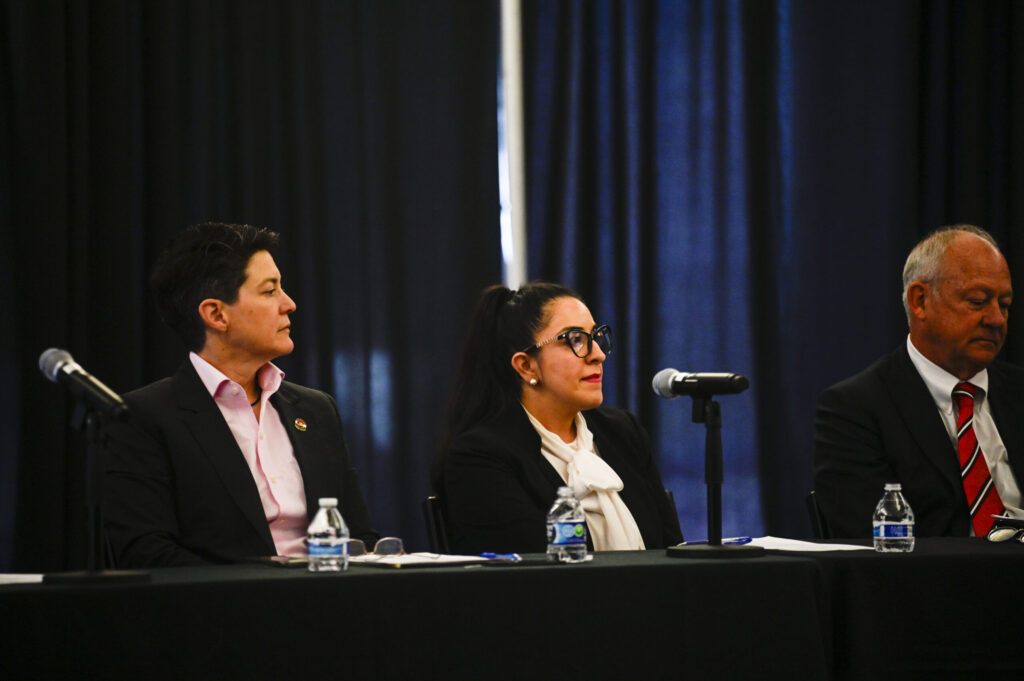Federal judge allows human trafficking lawsuit to proceed against Colorado Springs hotel operator
A federal judge agreed last week that a lawsuit could proceed against the operator of a Colorado Springs hotel for allegedly violating a 20-year-old human trafficking law.
The plaintiff, a woman identified as C.J., alleged she was the victim of sex trafficking at the Days Inn by Wyndham Colorado Springs/Garden of the Gods, located at 4610 Rusina Road. She claimed that in 2018, her traffickers paid for rooms, used the hotel’s Internet to advertise her for sex online and even paid staff to act as lookouts or informants.
C.J. sued the hotel operator, Santosa and Brother Inc., for violating the Trafficking Victims Protection Reauthorization Act. Congress originally enacted the law in 2000 and amended it in 2003 to allow victims to sue their traffickers. In 2008, Congress again amended the law enabling trafficking victims to sue anyone who “knowingly benefits” from a trafficking venture that they knew, or should have known, was illegal.
Santosa and Brother moved to dismiss the lawsuit. It acknowledged C.J.’s complaint alleged “red flags” of commercial sex activity, such as foot traffic to rented rooms, loitering, the presence of drug and sex paraphernalia, and people who appeared “malnourished and in sexually explicit clothing.” But it maintained C.J. had not claimed staff saw her, specifically, being forced into sex work.
“Plaintiff’s factual allegations (if true) would establish only that Santosa received a financial benefit from rooms and Wi-Fi fees paid for by Plaintiff’s alleged trafficker and that its employees were paid to serve as lookouts by him,” wrote the defendant’s attorneys. If that were enough for a federal violation, liability for a third party “could conceivably include restaurants, food delivery services, grocery stores, transportation services, car rental agencies, and gas station.”
U.S. District Court Chief Judge Philip A. Brimmer disagreed. He found C.J. had credibly alleged a trafficking violation, employing the same logic he used earlier this year in a nearly identical lawsuit brought by the same East Coast lawyers who are representing C.J.
“C.J. alleges that Santosa directly associated with her trafficker, stating that her trafficker paid Days Inn employees to act as ‘lookout(s)/informant(s) for Plaintiff’s trafficker so as to inform the trafficker of police activity or other similar type alerts,'” wrote Brimmer in a March 27 order.
As for whether Days Inn staff should have known of the alleged human trafficking taking place, Brimmer concluded certain details suggested the hotel had notice, including the malnourished guests in sexually explicit clothing and the “steady procession of sex buyers” going in and out of rooms.
“Although C.J.’s complaint lacks important details such as where and how large the victims’ bruises were and how many men visited the rooms of trafficking victims on a regular basis,” he wrote, “the Court finds that her complaint presents sufficient factual allegations to nudge her claim from possible to plausible in order to survive a motion to dismiss.”
The case is C.J. v. Santosa and Brother Inc.










